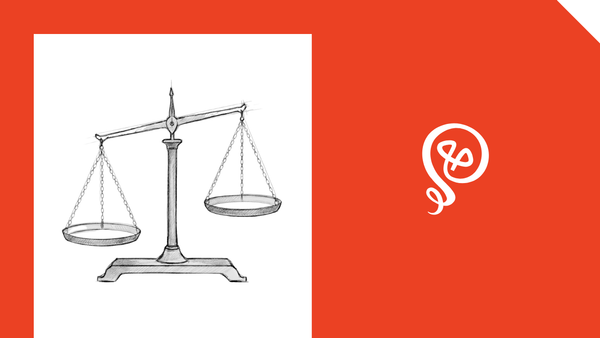How to Quit Your Job as a High-Performing Employee
Be prepared for a tough conversation.

Quitting a job is rarely the satisfying experience one would hope. In fact, sometimes it’s downright unpleasant.
If you’re the “get stuff done” person, a team lead, or even higher up the food chain, your absence is going to leave a hole in the company. And if the company has any ounce of self-awareness, they’ll realize what a pickle they’re in.
When you give notice, your boss might demand answers, ask you to take on extra work during your remaining time or provide a counteroffer. In any situation, you should be prepared with what you’re willing to do — and what you definitely won’t do.
I quit an executive role in 2021. My decision to leave surprised a lot of people, which made the final weeks awkward. But, in advance of the discussion, I planned out various scenarios in my head so that I could respond in a way that didn’t undermine my decision to leave.
Quitting is often about taking control of your career and your exit strategy should allow you to maintain control.
Plan your quit day
Either you’ve experienced this yourself or heard stories: the mysterious calendar invite that shows up from a manager or employee with no context. As a manager, I’ve been on the receiving end and it has always resulted in the employee quitting.
This approach to quitting can be a really risky tactic. It gives your boss time to plan. Which might be okay (like preparing a counteroffer, if that’s something you’re interested in). But it also might send the person into a tailspin of “what-ifs” or preparing to ambush you.
Worst case: the company pre-emptively decides to fire you and cut you off from everything.
To maintain control, you should either quit during a regularly scheduled meeting with your manager or add a calendar invite under the guise of another topic.
You can acknowledge that the news may come as a surprise and offer to work a longer notice period or continue to assist the company with some contract work to ease the transition (if you’re open to that). In my executive role, I made my boss aware that I would be available as a consultant for a few months, should the company choose to accept my help.
But the actual quit day was during a normal 1:1 meeting with my boss. We only met bi-weekly, so I had to plan a bit in advance. This might not be an option if you’ve accepted an offer that has a specific start date, but you’ll still want to do whatever you can to protect yourself in advance of giving notice.
Make your intentions clear
When you utter the words, “I quit” you need to leave no room for ambiguity.
Don’t chit-chat or slowly ease into the conversation. Say, “I want to get right to the purpose of this meeting. I’m leaving the company. My last day will be X.” Use as few words as possible.
Then pause and give the other person a chance to respond. If you’re nervous, you can repeat what you hear. If your boss says, “I’m shocked” you can reply, “I understand that comes as a shock.” You can think about some statements like, “This wasn’t an easy decision” (even if it was an easy decision) to ease the tension.
You should also make it clear if you’re open to a counteroffer or not. If you’re not, and your boss asks if they can counter, firmly say, “I appreciate that, but there’s no counteroffer I’m willing to accept. I ask that you respect my decision.”
You do not owe the company any information
Every company’s offboarding process is a little different. Your boss may ask you for an explanation immediately when you quit. Or the company may have a formal exit interview process.
You should prepare to discuss the reason for quitting when you provide notice — but only share what you’re comfortable sharing. If revealing the name of your new employer puts you at risk, then don’t share that info. This is particularly true if you’re going to a competitor or work in an industry where “everybody knows everybody.”
You can always tell a lie (or maybe it’s true!) that you’re quitting without anything else lined up.
If you want to share your reasons for quitting during an exit interview, it’s definitely an avenue to share what you think is wrong with the company. As a high-performing employee, you may carry more weight.
However, many, many companies are unable to recognize their own shortcomings. That’s why they lose good employees like you. In that case, make it easy on yourself and share as little as possible during an exit interview. No reason to rehash what will soon be in your rearview mirror.
Protect and preserve your work
You can’t predict how your employer will respond when you give notice. If you’re a high-performing employee with a lot of clients, the company may immediately move to protect itself and leave you out in the dust.
Before you give notice, take anything you feel like you might need. I’m not advocating company theft, but you may have projects you’ve worked on or other documents that represent your work. You can export all of your contacts from Google, Outlook, or whatever mail service you use.
Prepare as if you’re going to be cut off immediately after you give notice because it might happen.
If you end up serving out your notice period (such as two weeks), do not do anything above your work hours. The company should decide: you can either continue with your normal job responsibilities or prepare some documentation for the person who will be taking your place. Not both. You don’t owe the company any additional time.
Remain firm and level-headed
Never forget that you’re giving notice for a reason.
Practice in advance: what you’ll say and how you’ll reply. How you’re willing to help with the transition or not.
Take a walk or do something to calm your nerves before the meeting, if needed.
Don’t get sucked into any company drama or guilt. You don’t owe anything else.
You’re going to take your talents elsewhere. You’re almost done. You’ve made it out.
You can read about the future of work and career pivots on my Substack.





